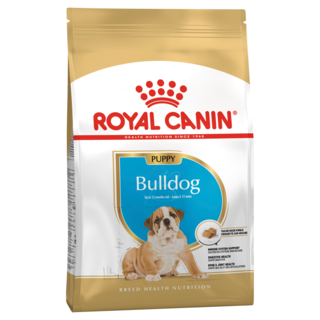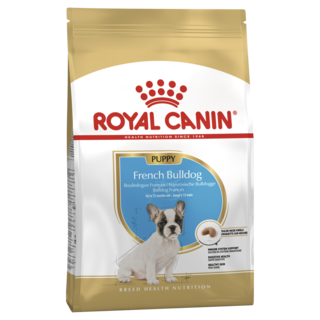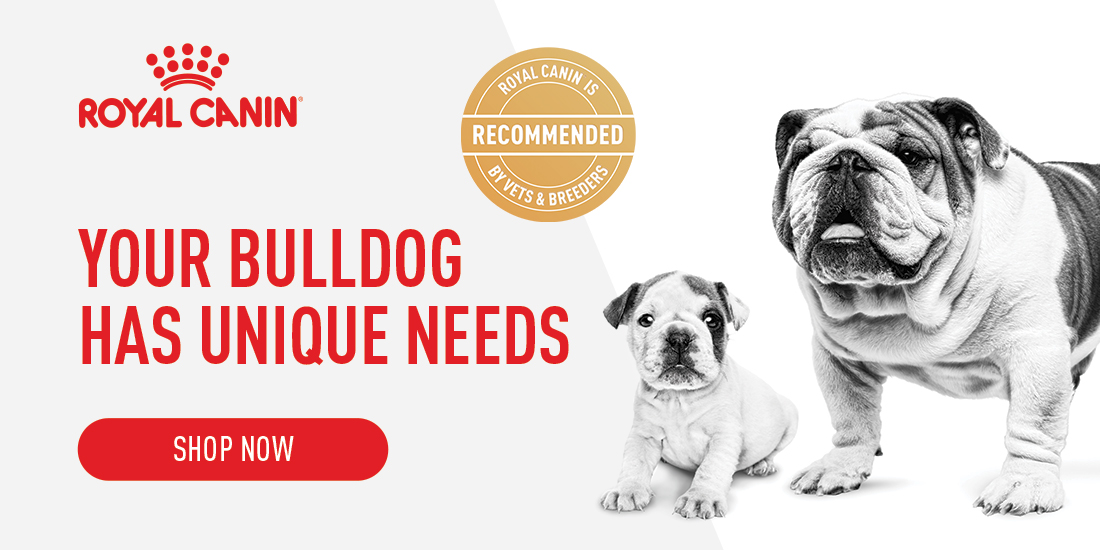Dog Breed
English Bulldog
Freindliness
Exercise Needs
Health Issues
Barking Tendencies
Grooming Needs
Shedding Level
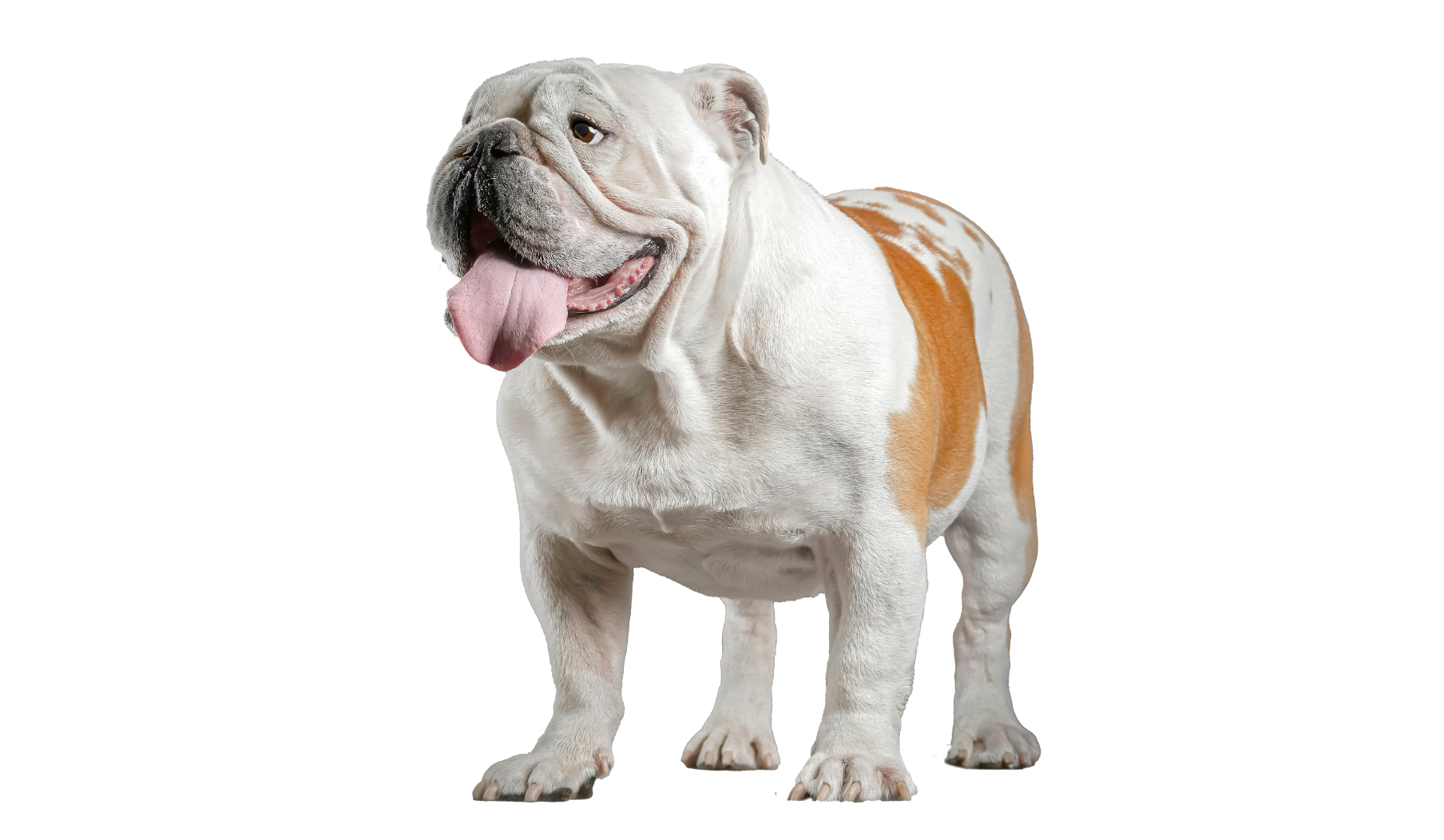

Charismatic couch potato
These stocky pups with their fierce expressions, jowly faces and noticeable underbite are instantly recognisable. While they may appear a little ‘grumpy’, they’re really loveable marshmallows, a breed bound to bring a smile to your face when you spot one on the street. They are just at home in a small apartment as they are in the family home.
While Bulldogs look distinctive, it's that English Bulldog personality that makes them such a popular pet. If you're looking for a laid-back, kind, courageous sidekick who's just as happy lying next to you as they are walking by your side, you can't go wrong with an English Bulldog.
Caring for your English Bulldog
Nutrition
Choosing the right food
Every dog is unique. From the small, flat-faced Pug to the obesity-prone Labrador Retriever. ROYAL CANIN® Breed Health Nutrition is tailor-made to address the unique needs of pure breed dogs. These breed specific formulas benefit from the latest ROYAL CANIN® research on the selection of the best protein sources, unique nutrients and tailor-made kibbles.
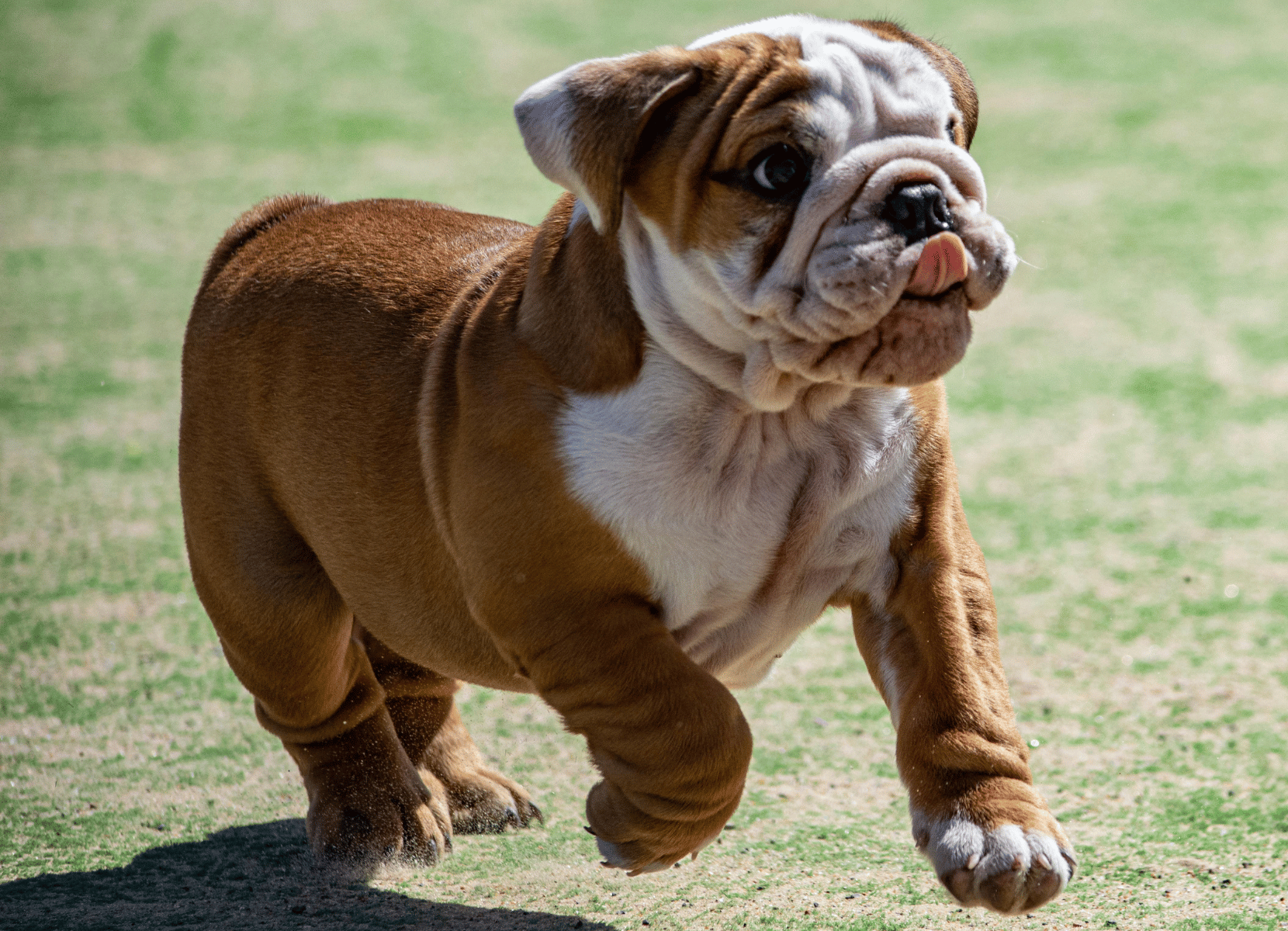
Exercising your dog
Most English Bulldogs benefit from regular, but not very strenuous, exercise.
Lead walking when it is not too hot is ideal, but watch your dog closely for breathing problems and/or overheating during any type of exercise.
Unless closely supervised, swimming isn’t a great activity for English Bulldogs because their bulky front end makes swimming much more difficult.
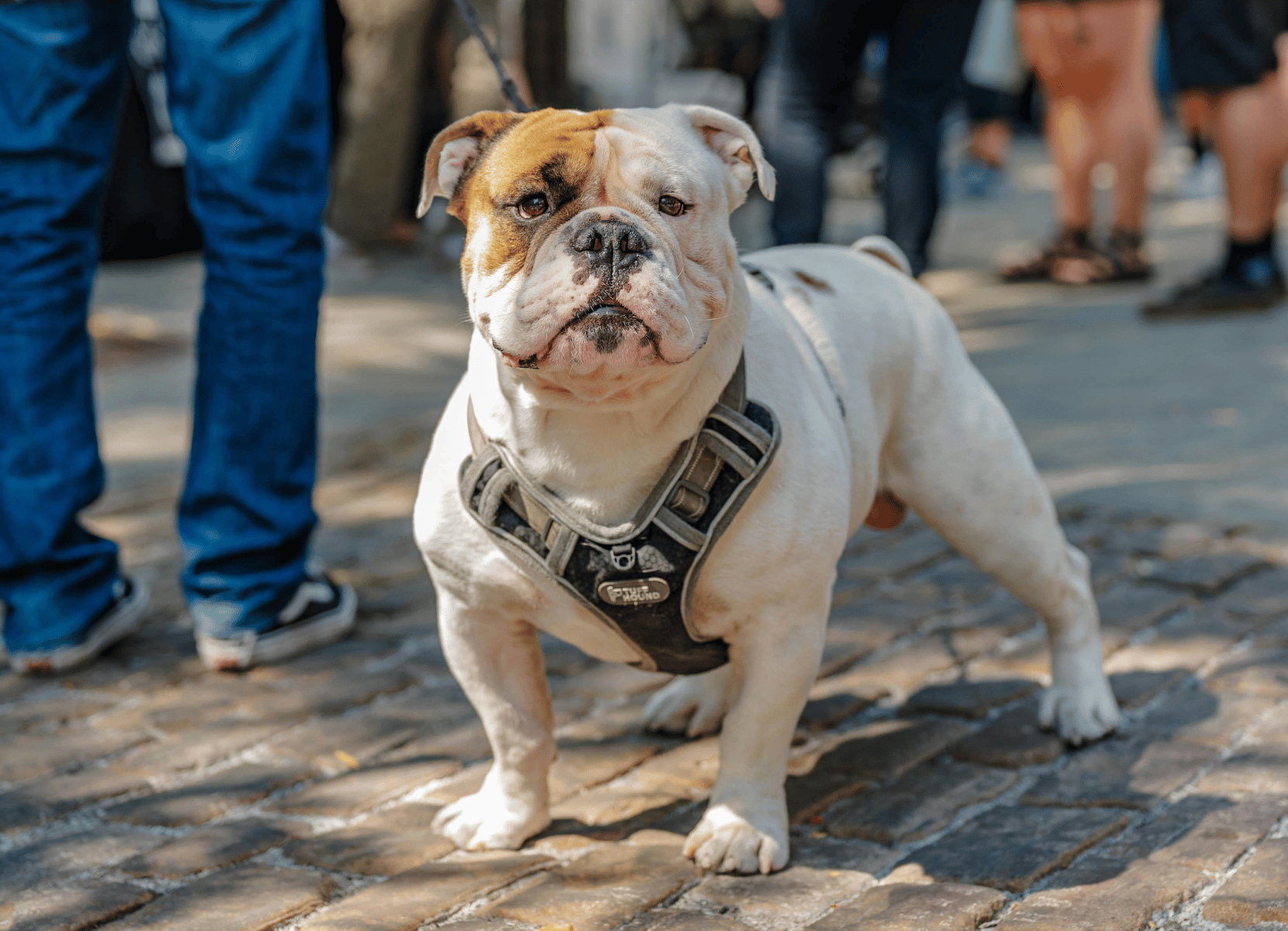
Training your English Bulldog
English Bulldog training can focus on basic skills such as sit, down and coming when called, but given their size and strength, it’s also important to teach these dogs to walk politely on lead. A good harness, can help prevent excessive pulling while your English Bulldog is learning how to walk on leash.
English Bulldogs are smart, thoughtful and strong enough to resist force, which has given them a reputation for being stubborn. If you try to make your English Bulldog do something, you may not get very far. English Bulldogs respond very well to positive reinforcement training, though, so make sure they get something good in exchange for doing the correct behaviour. Once they figure out that they can “make” you give them the good stuff, they’ll be much more interested in doing what you want.
For best results, keep English Bulldog training sessions short (especially at first). Use high quality tasty treats, to help keep your English Bulldog’s attention throughout the training session.

Your dog's health
Unfortunately, the English Bulldog is prone to several serious health problems which sadly means their lifespan can be much shorter than other breeds.
By recognising health problems in a Bulldog early you can seek advice and treatment from a veterinarian.
Reduce the risk of health problems by purchasing a puppy from a responsible breeder. Always inspect breeding facilities and breeding dogs, and never buy from a distant online seller.
Health Issues to watch out for:
Brachycephalic Obstructive Airway Syndrome
Skin Problems
Eye Problems
Orthopaedic Problems
Heart Problems
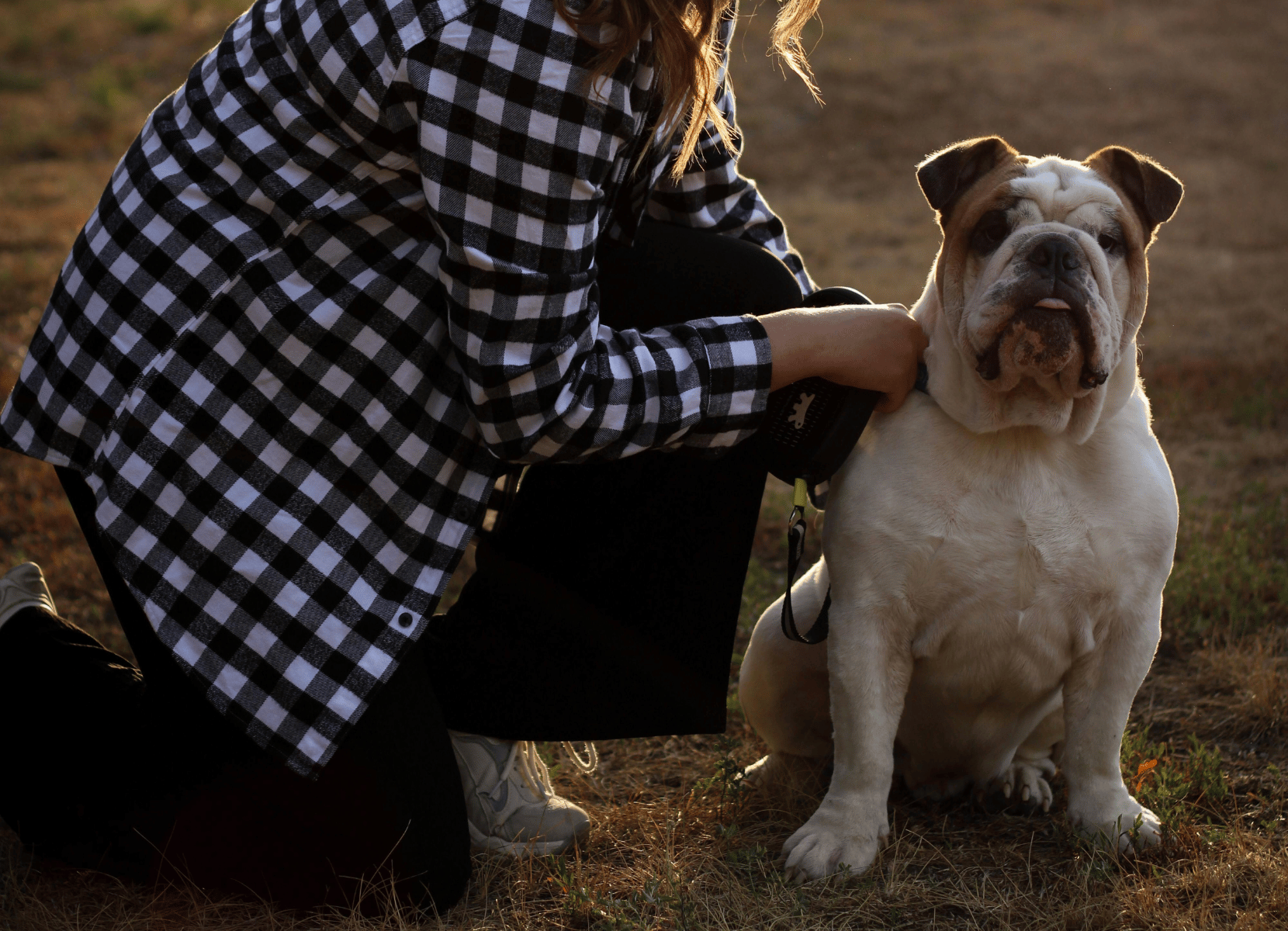
Grooming your dog
To care for their coats, English Bulldogs should be brushed a few times a week and bathed approximately monthly to keep them clean. English Bulldog shedding isn’t excessive, although you can expect to see a bit of their short hair littered around the house.
Skin folds may need to be cleaned a few times a week using wipes.
Brush their teeth daily to remove tartar buildup and the bacteria that lurk inside it. Daily brushing is even better if you want to prevent gum disease and bad breath.
Buy good quality dental toys and some healthy dental treats to aid in their dental health.
Key characteristics of English Bulldogs
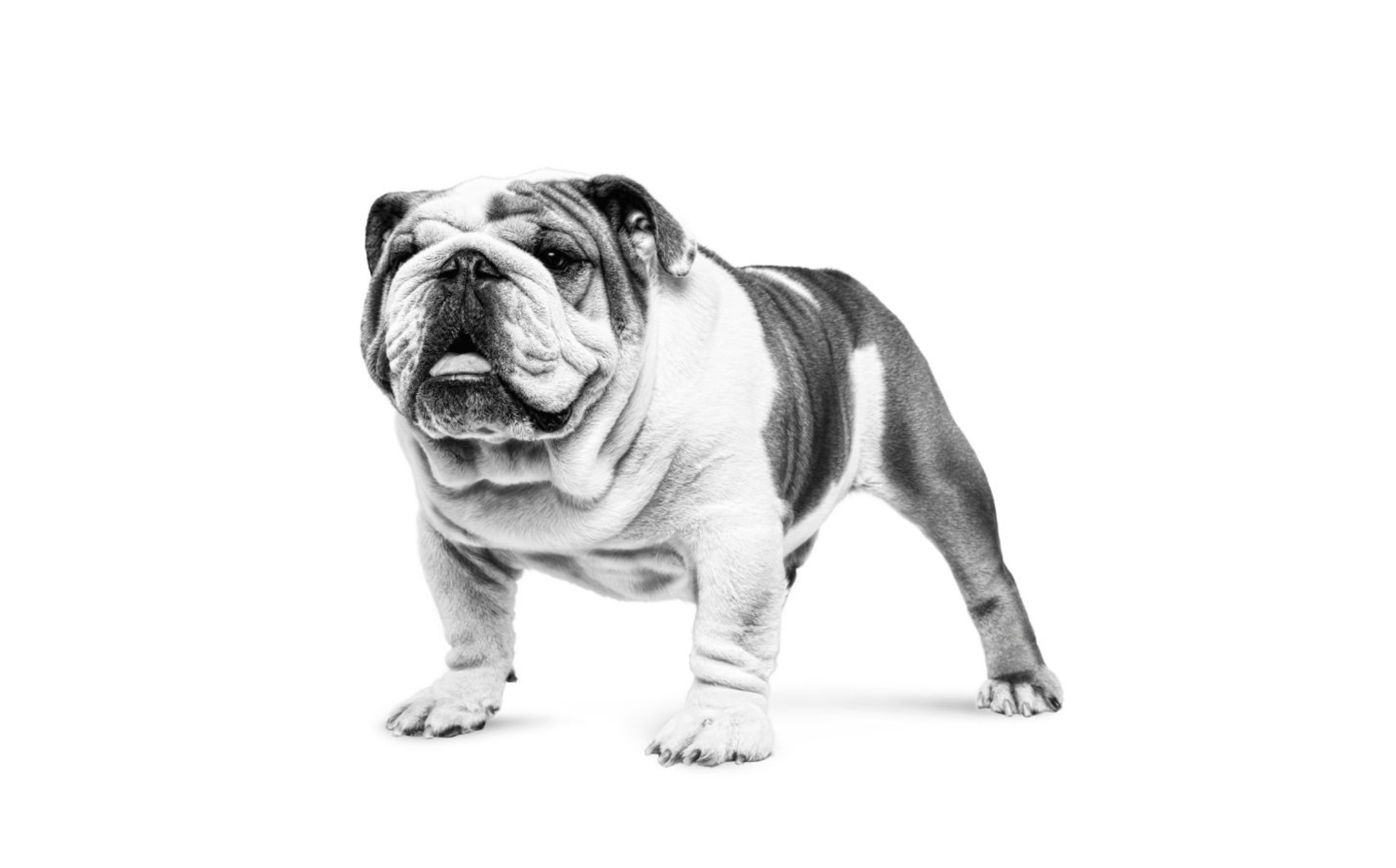
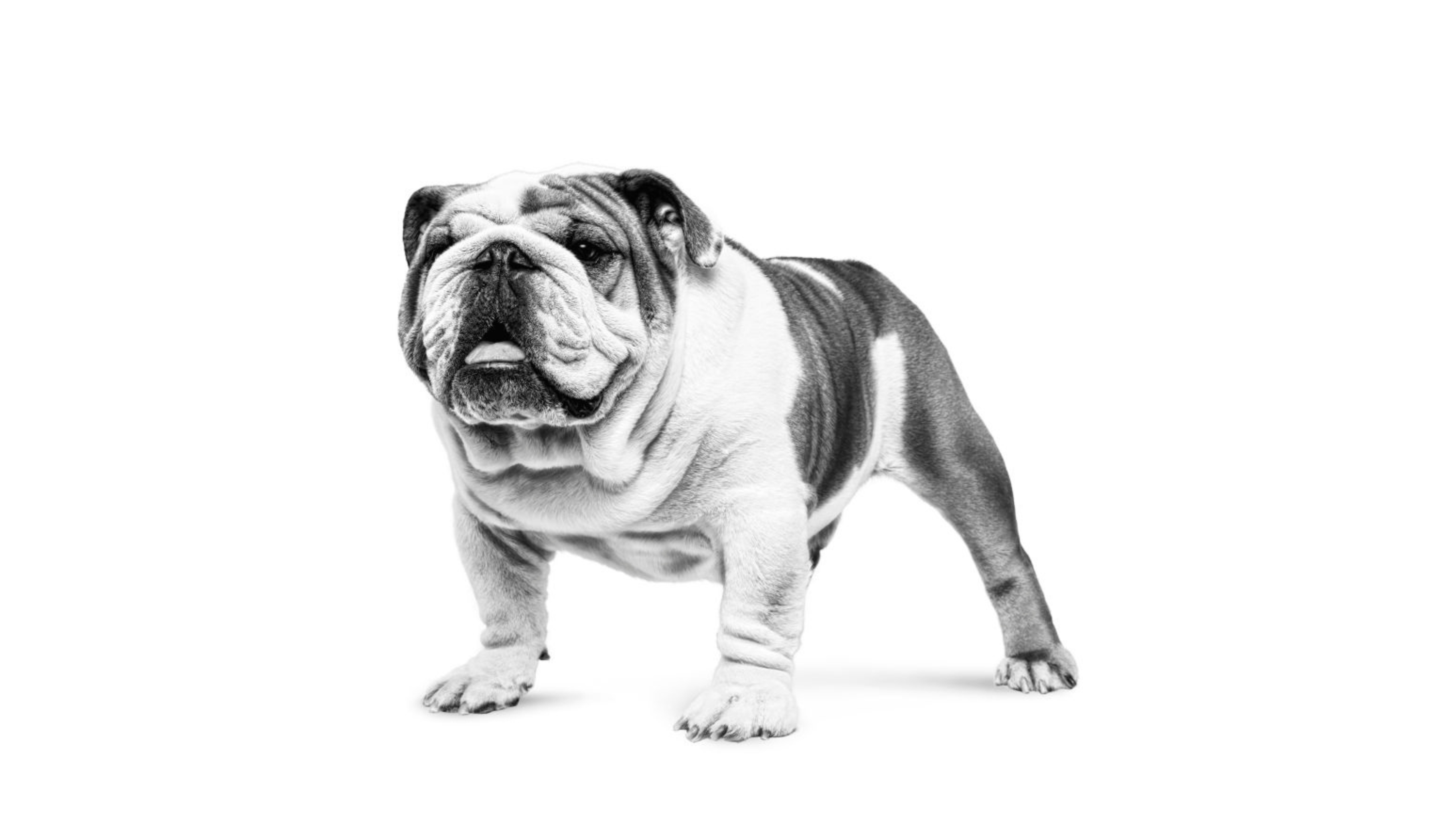
English Bulldog FAQs
English Bulldogs are calm, loyal, and full of charm. If you’re welcoming one into your home or already have a wrinkly companion snoring on your sofa, these FAQs answer some of the most commonly searched questions that aren’t covered in the main breed guide. They’re especially useful for new owners or curious fans of this lovable breed.
Can English Bulldogs live in hot climates?
English Bulldogs are highly sensitive to heat due to their short snouts and compact bodies. In warmer climates, it’s important to keep them indoors during the hottest parts of the day, provide access to cool water, and avoid intense exercise to prevent overheating.
Are English Bulldogs good pets for apartment living?
Yes, English Bulldogs are well suited to apartment living. They are low-energy, rarely bark without reason, and enjoy lounging indoors. Regular short walks and mental stimulation are enough to keep them happy in smaller spaces.
Do English Bulldogs drool a lot?
Yes, English Bulldogs are known for drooling, especially after eating or drinking. Keeping a cloth handy and cleaning around their mouth folds can help manage this trait and keep their skin healthy.
Can English Bulldogs go up and down stairs?
English Bulldogs may struggle with stairs due to their stocky build and joint sensitivity. Puppies and older Bulldogs are especially vulnerable to injury, so it’s best to assist them or limit stair use where possible.
Are English Bulldogs aggressive?
Despite their tough appearance, English Bulldogs are generally gentle and affectionate. Aggression is uncommon when they are well socialised from a young age. Consistent training and calm handling help reinforce their easygoing temperament.
These FAQs help shed light on life with an English Bulldog beyond the basics. With the right care, Bulldogs thrive as laid-back, affectionate companions who bring a whole lot of love and personality to any home.

